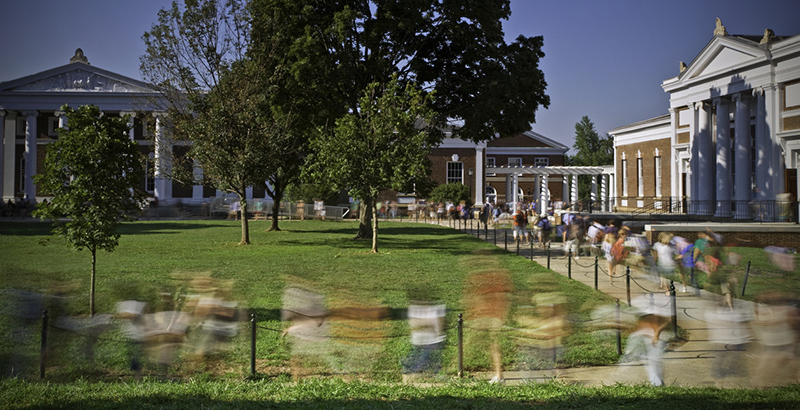Manno: The Link Between College and a Good Job Is Even Weaker Since COVID-19. Here Are Some New, More Effective Pathways to Opportunity & Employment

Americans assume an almost fairy-tale link between a college education and a good job.
Take college freshmen. In 2019, more than 8 in 10 (83 percent) said a “very important” reason for attending college was “to be able to get a better job.”
But reality is different.
A 2018 study of over 800 million job postings and 80 million resumes from many years found 4 in 10 college grads worked in jobs not requiring a college degree — for example, as a barista. Three in four stayed underemployed after 10 years.
COVID-19 has further weakened the link between college and getting “a better job.”
Since the pandemic, entry level hiring for college grads is down 45 percent. Postsecondary undergraduate enrollment continues to decline: Spring 2021 enrollment is down 4.5 percent from the prior year, with reductions in all racial and ethnic groups. There was an especially sharp decline in community college enrollment — down 9.5 percent from last spring.
Also, Generation Z high schoolers have changed their thinking about what follows graduation. Over the past eight months, their desire for a four-year degree dropped greatly. More than one in two (52 percent) say they can achieve professional success in three years or less, while only 1 in 4 says a four-year degree is the only route to a good job.
But there’s good news.
Postsecondary institutions and community organizations are creating new and more effective education pathways to opportunity that link education, training and employment. These programs form community partnerships that build bridges among schools, students and employers. They prepare individuals to pursue opportunity. They award accredited degrees and industry-recognized credentials and certificates. They foster opportunity pluralism, creating new options to the “bachelor’s degree or bust” mindset.
Here are five examples illustrating this approach.
College-linked community college: Come to Believe Network is a two-year commuter program reinventing community college. It offers associate degrees and is hosted by Loyola University in Chicago and St. Thomas University in St. Paul, which share resources like the library and back-office services. It has its own full-time faculty and year-round calendar. It provides student support services including meals, laptops, tutoring and career development. Counselors help students explore careers and pursue job searches. They also work with employers to recruit students seeking work experience and employment. Students complete degrees with little or no debt, prepared for the workforce or a four-year college or university.
Statewide programs: Building Futures is a Rhode Island registered apprenticeship program that works with 29 public, private and nonprofit organizations on apprenticeships in several industries. These include construction, health care, manufacturing, commercial fisheries, information technology and marine trades. It has partnerships with the state Department of Labor and Training, Department of Transportation and Office of Civil Rights. Employers co-design programs with Building Futures staff and fund the student training, with a focus on individuals from low-income backgrounds. The program includes work placement and wage progression. Apprentices earn a credential accepted by industries and employers across the U.S.
Postsecondary diversification through acquisitions: Indianapolis-based Kenzie Academy was a venture-funded technology and apprenticeship program for young people, including high school graduates, formerly incarcerated individuals and those with master’s degrees seeking new jobs. It offered credentialed online programs in software engineering and UX — user experience — design with an apprenticeship in Kenzie Studio, the company’s consulting arm. To make its programs accessible, Kenzie has income-share agreements with students, delaying tuition payment until they landed a job paying at least $40,000 a year. The program was recently purchased by Southern New Hampshire University, becoming a nonprofit operating division of SNHU.
Nonprofit partnerships: CodePath is a national nonprofit that prepares underserved populations for technical careers. It partners with over 50 universities and 50 companies to offer no-cost coding courses, mentorships and career support. CodePath supplements college-level courses with campus-based and online computer science classes taught by tech company instructors, with about half offered for academic credit. Students undertake projects based on industry problems. Training ends with a virtual summer course that prepares students for technical interviews with top companies. It’s taught by professional engineers and includes lectures, labs, mock interviews and sessions with industry experts.
Stand-alone nonprofit providers: Generation USA is the American affiliate of Generation, founded by McKinsey & Co., preparing, placing and supporting young adults in pathways programs for jobs in information technology, health care and customer service. It gives priority to Black and Latino applicants, women and those who don’t have a four-year degree, and partners with employers and community colleges to design and deliver free four- to 12-week programs. These are especially designed for the unemployed, underemployed and those facing job displacement. The Rising Talent programs offer students extra support and one-on-one guidance. Virtual career advising sessions provide students and alumni with one-on-one coaching. GenConnect is an online alumni community space that uses videoconferencing so alumni can maintain contact with each other. Programs are offered in over a dozen places, including San Juan, Puerto Rico.
These programs have four characteristics that create a framework for success.
Credentials that pay: Programs have a sequenced academic curriculum, requirements aligned with labor-market needs and a timeline guiding participants through the program. Young people leave with training and a recognized career credential that provides them with a decent income.
Formal agreement among multiple participants: Written agreements — a civic compact of sorts — describe roles and responsibilities and include a program budget. Partners — schools, other educational and community institutions, government agencies, etc. — have a management and governance structure with access to influential individuals needed for program success.
Introduction to careers and on-site work experience: This begins with activities like presentations by speakers and field trips and eventually involves work placement, including mentorships, internships and actual employment, integrated with classroom instruction. This helps participants understand career labor-market demands.
Involvement of employers, trade associations and local organizations: Participating employers and trade associations help define standards and skills students must master to gain a certificate and employment; provide paid internships and apprenticeships; and help assess workforce readiness. Other organizations assist with convening, organizing and planning functions, in addition to providing work placement and social services for participants and their families. These include community foundations, community colleges, chambers of commerce, private-industry councils, the Salvation Army and United Way.
The academic and work learning, along with personal and professional networking central to these programs, provide young people with the knowledge and networks they need to pursue opportunity. They are an exercise in opportunity pluralism, helping individuals develop an occupational identity and vocational self in a field they might not otherwise have access to or even consider. And they provide faster and cheaper pathways to jobs and careers than many traditional postsecondary schools, placing students on a trajectory to economic and social well-being and informed citizenship.
Bruno V. Manno is senior adviser to the Walton Family Foundation’s K-12 Program. Walton Family Foundation provides financial support to The 74. All but one of the programs mentioned above (Kenzie Academy) are members of the New Profit Learn to Earn Postsecondary Innovation for Equity Initiative supported by several foundations, including the Walton Family Foundation.
Get stories like these delivered straight to your inbox. Sign up for The 74 Newsletter

;)
